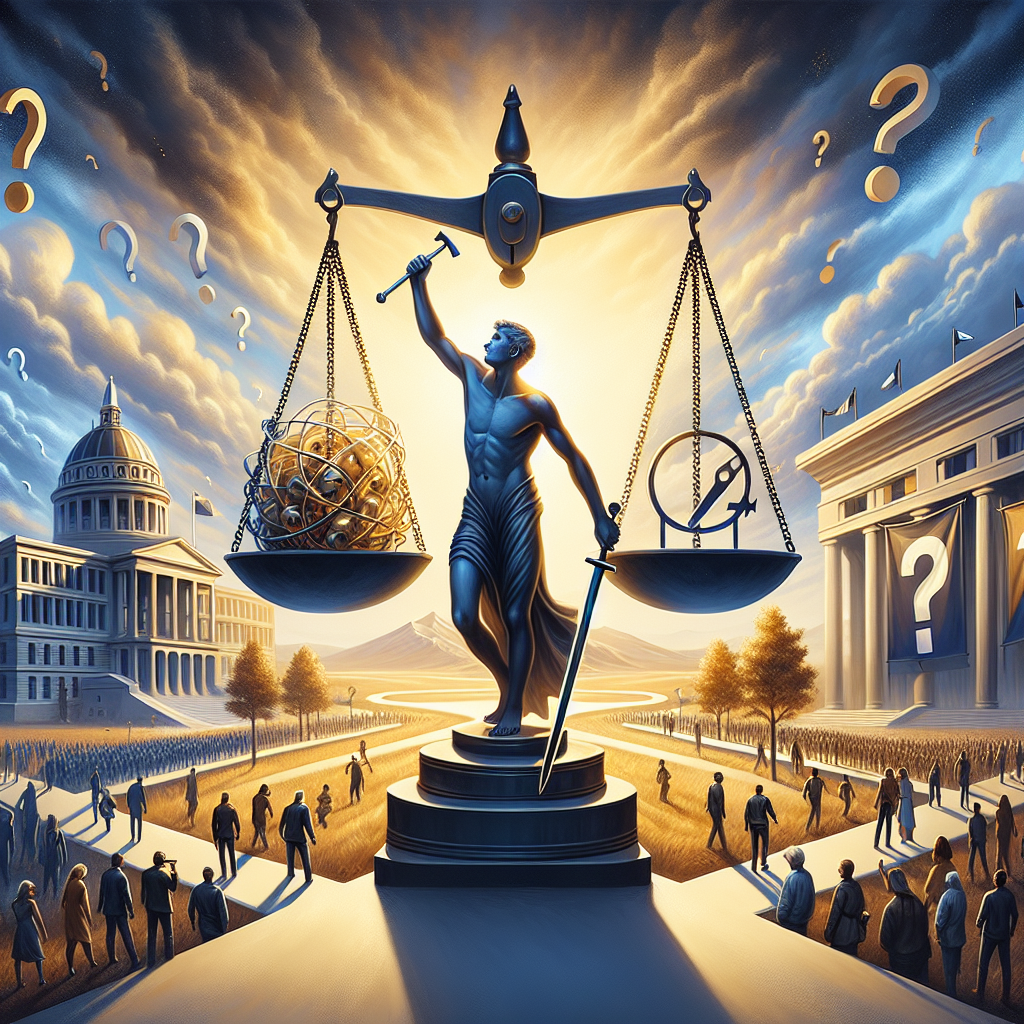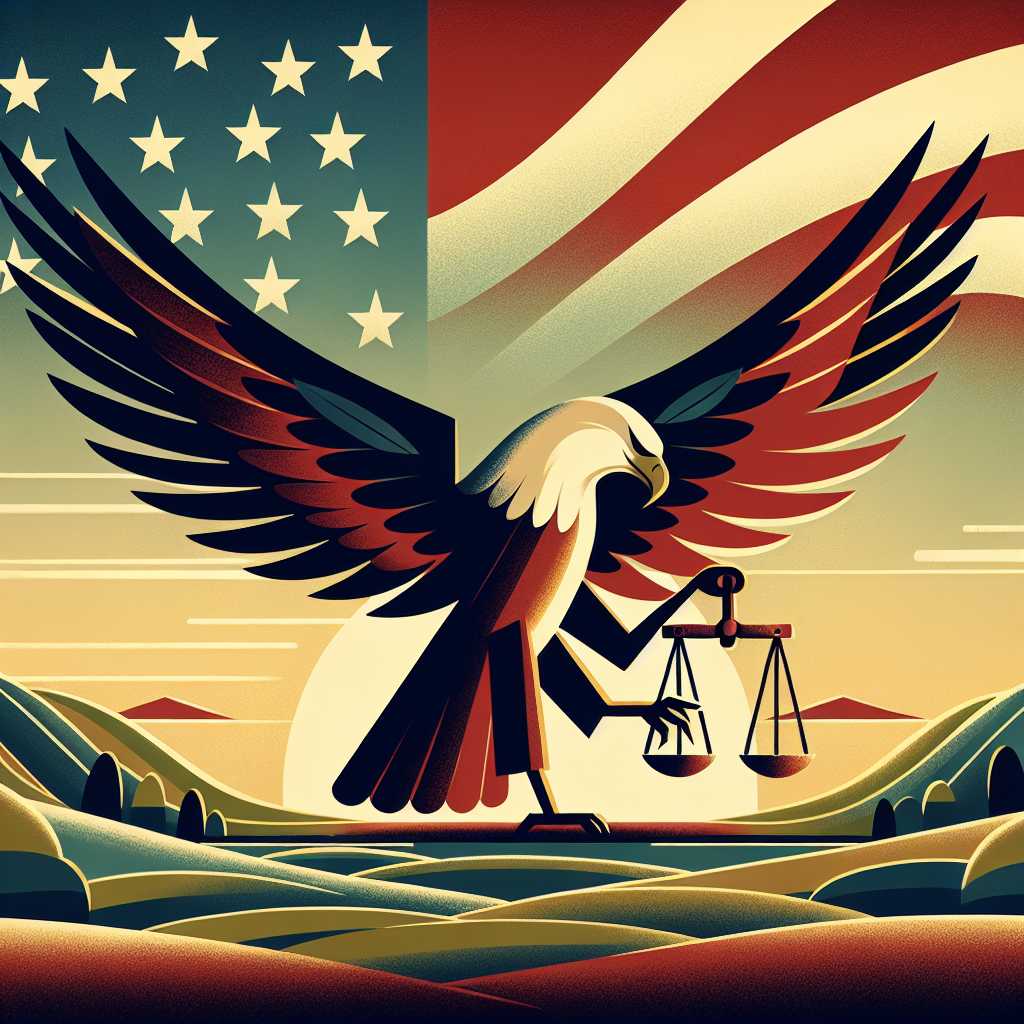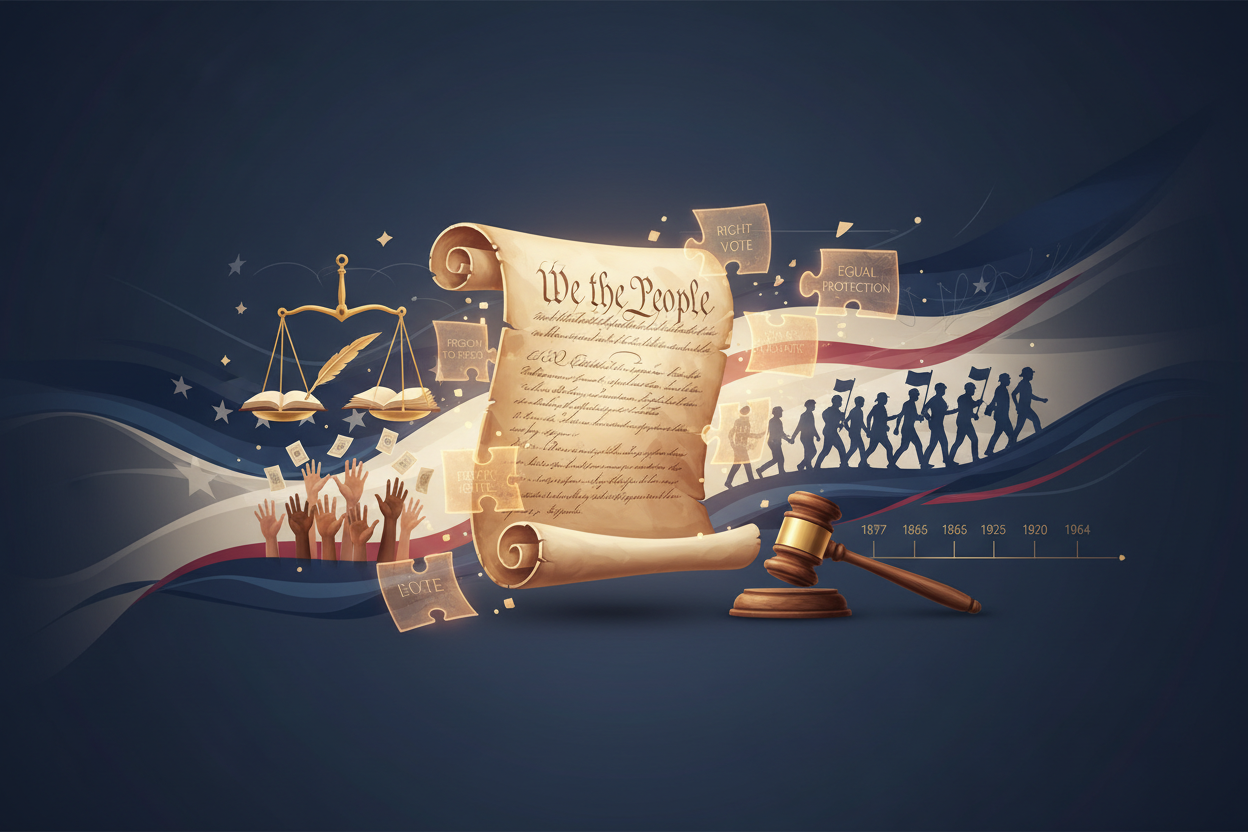Libertarianism and Its Impact on American Politics
In recent years, the political landscape in the United States has witnessed a growing interest in libertarianism. This philosophy, which champions individual liberty, limited government, and free markets, has started to influence various aspects of American politics. But what exactly is libertarianism, and how is it shaping the political dialogue in the U.S.? Let’s delve into the core tenets of libertarianism and explore its impact on American politics.
Understanding Libertarianism
Libertarianism is a political philosophy that emphasizes personal freedom and autonomy. At its core, libertarians believe that individuals should have the liberty to live their lives as they see fit, provided they do not infringe on the rights of others. This belief leads to a strong advocacy for minimal state intervention in both personal and economic affairs.

Historically, libertarianism draws from classical liberalism, which promotes civil liberties and political freedom. The principles of libertarianism can be summarized by the phrase “live and let live.” This ideology prioritizes voluntary association and mutual consent over coercive government power.
The Rise of Libertarianism in American Politics
The rise of libertarian thought in American politics can be traced back to several pivotal moments and figures. In the late 20th century, political figures like Ron Paul and organizations such as the Cato Institute brought libertarian ideas into the mainstream. The Libertarian Party, founded in 1971, has also played a crucial role in promoting these ideals.
Today, libertarianism is gaining traction, particularly among younger voters disenchanted with traditional political parties. The appeal lies in its promise of personal freedom and skepticism of government overreach. The digital age has further amplified libertarian ideas, with social media platforms providing a space for libertarian voices to be heard and shared widely.
Libertarianism and Economic Policies
One of the most significant areas where libertarianism has influenced American politics is economic policy. Libertarians advocate for a free-market economy, arguing that government intervention often leads to inefficiency and stifles innovation. This has led to discussions on reducing regulations, lowering taxes, and privatizing certain government functions.
Proponents of libertarian economic policies argue that a free market allows for more competition, leading to better products and services. Critics, however, worry about the potential for increased inequality and lack of protections for vulnerable populations. Despite these concerns, the libertarian approach to economics continues to attract attention and shape policy debates.
Libertarianism and Social Issues
Libertarianism’s impact on social issues is equally noteworthy. Libertarians generally support a broad range of civil liberties, advocating for the decriminalization of drugs, marriage equality, and privacy rights. The philosophy’s emphasis on personal choice and autonomy resonates with those who favor progressive social policies.
This alignment on social issues has led to interesting political alliances and has influenced the platforms of both major parties. As Americans increasingly prioritize personal freedoms, libertarian ideas are likely to continue shaping discussions around civil rights and social justice.
Challenges Facing Libertarianism
Despite its growing influence, libertarianism faces several challenges in the American political landscape. The two-party system makes it difficult for third-party candidates, including libertarians, to gain significant traction in elections. Additionally, internal disagreements within the libertarian movement, such as the extent of government involvement in certain areas, can hinder cohesive action.
Moreover, the philosophy’s emphasis on minimal government can be viewed as impractical in addressing complex issues like climate change and healthcare, where coordinated efforts are often necessary. These challenges highlight the ongoing debate about the role of government in society and how best to balance freedom with collective responsibility.
Conclusion
Libertarianism continues to shape American politics by advocating for individual freedom and questioning the role of government. While the philosophy faces challenges, its influence is evident in ongoing debates over economic policies and social liberties. As the political landscape evolves, libertarian ideas may play an increasingly prominent role, offering new perspectives on how to navigate the complexities of modern society.
Frequently Asked Questions
What is the core principle of libertarianism?
The core principle of libertarianism is the belief in individual liberty and minimal government intervention. Libertarians advocate for personal freedom, voluntary association, and free markets.
How has libertarianism influenced American politics?
Libertarianism has influenced American politics by introducing ideas of limited government, economic freedom, and social liberties. It has shaped debates on issues like taxation, regulation, and civil rights.
What are some criticisms of libertarianism?
Critics of libertarianism argue that it can lead to increased inequality and may not adequately address complex social issues that require collective action. Additionally, the philosophy’s emphasis on minimal government can be seen as impractical in certain contexts.
Is libertarianism gaining popularity in the U.S.?
Yes, libertarianism is gaining popularity, especially among younger voters who are disillusioned with traditional political parties. The rise of digital platforms has also facilitated the spread of libertarian ideas.





Leave a Reply
You must be logged in to post a comment.